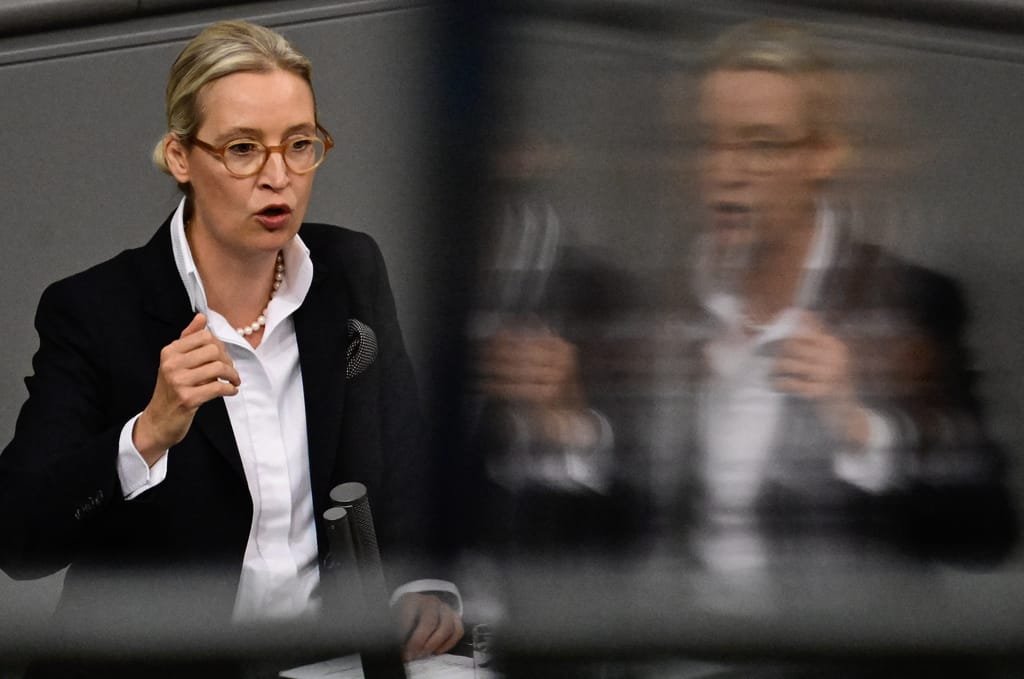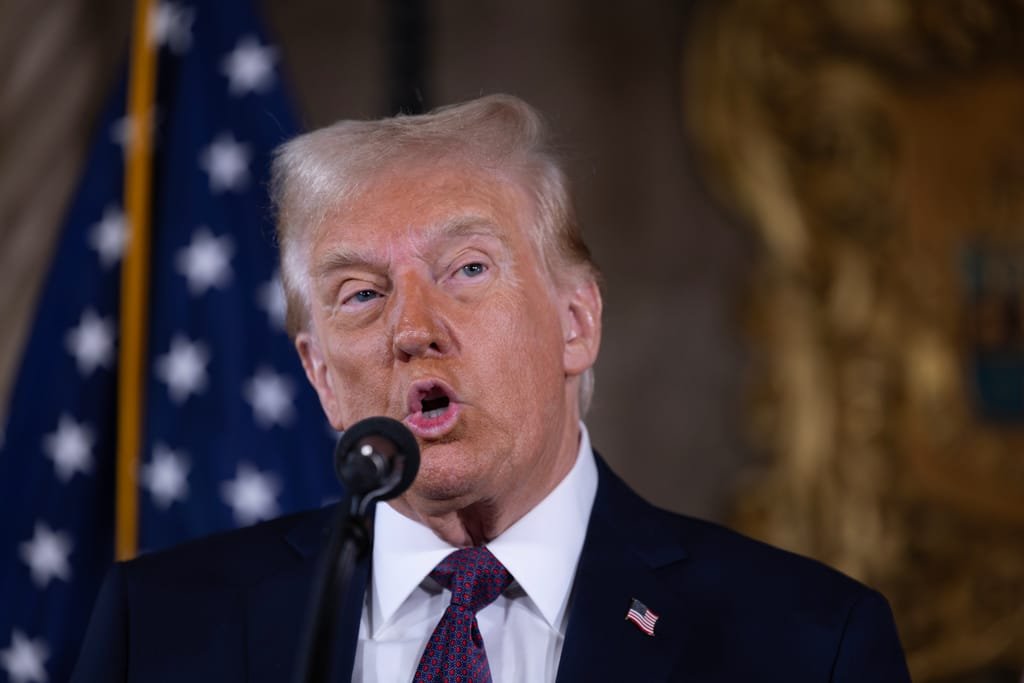Up to 150 experts in Brussels and Seville will be checking whether Musk’s livestream interview boosts the German far right.

BRUSSELS — When tech tycoon Elon Musk interviews German far-right leader Alice Weidel on X on Thursday night, Europe’s powerful tech regulators will be watching closely for possible violations of EU law.
They’ll be less concerned with the banter than with how the Musk-owned platform and algorithm pushes the livestream to its more than 100 million EU users. In particular, they’ll be evaluating whether X gives an unfair campaign advantage to Weidel’s Alternative for Germany (AfD) party over its rivals.
Musk’s online interview comes just weeks before Germany’s Feb. 23 general election, with the anti-immigration AfD currently polling second. Musk recently praised the group as the “last spark of hope” for Germany, drawing widespread accusations of election interference.
A team of up to 150 European Commission officials in Brussels and Seville will help scrutinize whether Musk’s social media site plays by the European Union’s tech rules. They wield far-reaching investigative powers that allow them to visit X’s offices and request access to its algorithm and internal correspondence.
The Brussels-based enforcers of the Digital Services Act (DSA) at the Commission’s DG CONNECT tech department are assisted by experts from the European Centre for Algorithmic Transparency in Spain.
Evidence gathered Thursday evening could bolster the EU’s landmark case against X under the DSA. The bloc formally charged Musk’s platform with failing to respect EU rules in July and is finalizing its decision — a first-of-its-kind verdict under the tech law.
Don’t expect an outcome by Friday morning, however. The timeline is fluid, and fining X would likely trigger a diplomatic war with the incoming U.S. administration of Donald Trump, who has taken on Musk as a close advisor.
Ultimately, any decision on whether to act will be taken at the political level, at the very top of the Commission.
EU tech czar Henna Virkkunen and her colleague Michael McGrath told lawmakers in a letter this week that the Commission plans to “energetically advance with the case” and “come to a conclusion as early as legally possible.”
The Commission hasn’t yet imposed any of its potential DSA penalties. Fines could go as high as 6 percent of global yearly revenue, and regulators could order firms in breach to take action to stop any problems. Officials can also put a company on watch via “an enhanced supervision period to ensure compliance,” and issue daily fines until they obey.
Boosting the algorithm
The EU’s digital enforcers have already said their focus is on whether Musk bends the X algorithm in his favor, such as by boosting his content or potentially by giving the AfD leader a larger platform and downgrading content from her rivals. Doing so would be considered an unfair advantage and could be seen as a breach of EU social media law.
“How much is [it] or will it be boosted? This is what the Commission will be looking at,” Commission spokesperson Thomas Regnier told reporters on Monday.

The Commission will also be watching closely to see how X respects the DSA, a law that orders platforms to take down illegal content and act against disinformation, and that prompts them to map and deal with threats to elections and public discourse.
X is such a large platform that it’s under the direct supervision of the EU’s DG CONNECT digital department. The social media platform was the first target of the DSA in December 2023, with a probe that escalated to charges in July for misleading users, lacking transparency, and failing to share some public data.
Regnier told POLITICO that the Commission’s DSA enforcement team could decide to widen the ongoing probe and send new requests to access information based on how the algorithm handled the AfD livestream.
Shiny new powers
Researchers note that the Commission now has “shiny” new additional powers to assess whether the stream got a boost.
The first option is to ask X for “any internal memos or communications on the topic,” said Mathias Vermeulen, public policy director at the AWO Agency law firm.
Vermeulen pointed to media investigations suggesting that when Musk’s 2023 post about the Super Bowl received less engagement than a post from U.S. President Joe Biden, Musk’s inner circle took the matter to the company’s Slack messaging platform to rally a team of engineers to boost his reach.
If something similar happens now, the EU executive could look for traces of such correspondence.
“The [European Commission] can request messages that are publicly posted on Slack,” Vermeulen said.
Another route is to pull apart the platform’s recommendation algorithm.
The EU’s social media law imposes extra transparency requirements on platforms using recommender systems. This is where the EU’s algorithm experts in Seville come in, a team of some 30 people who can help analyze how the platform decides what to promote.
“The Commission could look at whether Alice Weidel, or any other user for that matter, received a so-called power user multiplier score in its recommendation algorithms,” Vermeulen explained.

Such a score could give a person’s posts more exposure.
A study at Queensland University last year found indications that X might have tweaked its algorithm to boost the reach and engagement of Musk’s posts.
Probing self-promotion
Musk has emerged in recent months as a top ally of U.S. President-elect Donald Trump, firing off heated comments about European politics. European politicians and lawmakers have reacted by pressing the Commission to investigate his possible self-promotion.
“What I’m trying to find out is if Musk is using a large information platform that he owns in ways which could diminish the freedom of speech of others, by hard-coding a multiplier into his own reach,” German Greens MEP Damian Boeselager told POLITICO on Monday, having formally asked Virkkunen to examine the issue.
While it has in-house expertise, the Commission could also draw on researchers and civil society groups to monitor Thursday evening’s live stream.
“There will be a number of expert organizations who have the capacity regarding data scraping and data analysis [that] will be probably following [the event],” said Eliška Pírková, senior policy analyst at digital rights group Access Now.
But they might have a hard time doing so: Last July, the Commission criticized X for failing to give researchers access to public data.
“That already places significant obstacles to transparency, and if there’s not enough transparency, there cannot be enough accountability,” Pírková said.
Eddy Wax contributed reporting to this story.





